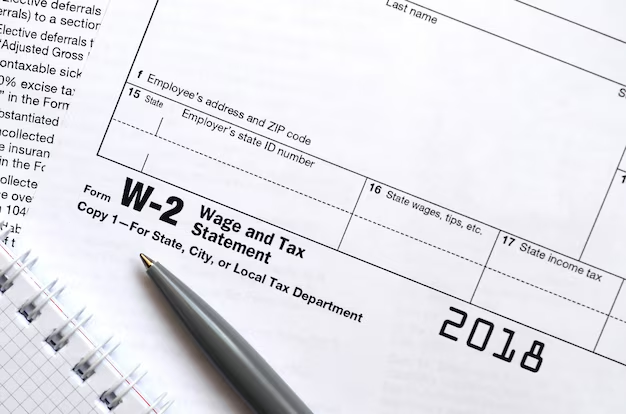Your Guide to Does Tn Have State Income Tax
What You Get:
Free Guide
Free, helpful information about TAX FAQ and related Does Tn Have State Income Tax topics.
Helpful Information
Get clear and easy-to-understand details about Does Tn Have State Income Tax topics and resources.
Personalized Offers
Answer a few optional questions to receive offers or information related to TAX FAQ. The survey is optional and not required to access your free guide.
Understanding Tennessee's Approach to State Income Tax: What Residents Need to Know
When considering moving to a new state or even while living in your home state, one crucial factor often overlooked until tax season is income tax. Understanding how state income tax works, or doesn't, can have a significant impact on personal finances. If you're curious about whether Tennessee imposes a state income tax, you're in the right place. Let's explore this topic thoroughly, addressing related concerns and providing valuable insights along the way.
Tennessee's Unique Tax Landscape
What Taxes Exist in Tennessee?
Tennessee stands out because it does not levy a state income tax on wages, making it one of the few states in the U.S. with this distinction. For those familiar with states like California and New York, where state income taxes are substantial, Tennessee's tax structure may come as a pleasant surprise.
The state, however, does impose a tax burden in other forms. Up until January 1, 2021, Tennessee had the Hall Income Tax, which taxed interest and dividends. This tax has since been phased out, simplifying the tax landscape for residents even further.
Sales and Property Taxes
While Tennessee doesn't have a state income tax on wages, it's essential to note that it maintains revenue through other taxes, notably sales and property taxes. Tennessee's sales tax is relatively high, with the base rate being among the top in the nation. Counties can impose additional sales tax, resulting in rates that can exceed 9% in some areas. Property taxes, on the other hand, remain moderate, providing a balanced approach to revenue generation.
Does Tennessee Plan to Introduce State Income Tax?
As of the latest information, there are no active proposals to introduce a state income tax in Tennessee. The state prides itself on being attractive for individuals and businesses, maintaining a competitive edge through its favorable tax policies. Any proposed changes to this approach typically undergo intense scrutiny, given the potential economic impacts.
Key Considerations for Residents and Prospective Movers
Cost of Living Adjustments
While the absence of a state income tax might seem advantageous, prospective residents should evaluate the overall cost of living. High sales taxes can influence daily expenses, especially for large purchases. Understanding the balance between these factors is crucial for financial planning.
Budgeting and Financial Planning Tips
Consider Sales Tax Impacts: When budgeting, remember that the high sales tax can affect items such as vehicles, electronics, and other substantial purchases.
Evaluate Property Taxes: If property ownership is part of your plan, investigate local property tax rates as they can vary significantly by county.
Leverage Savings: Redirect savings from the lack of state income tax to investments or savings plans, enhancing your long-term financial health.
How Tennessee Compares to Other States
States Without State Income Taxes
Tennessee is in a unique group of states that do not tax wages. Other states include Florida, Texas, and Nevada. While this can indicate potential savings, each state compensates revenue via other taxes, necessitating a thorough comparison.
Impact on Individuals and Businesses
Individuals often benefit from the lack of state income tax, particularly those in higher income brackets. However, businesses must consider the comprehensive tax landscape, including sales, excise, and potential local taxes.
Economic Growth Patterns
Tennessee's decision to forgo state income tax has contributed to its economic growth, attracting individuals and businesses seeking a favorable fiscal environment. This approach has influenced migration trends, with many relocating for both economic and lifestyle benefits.
Practical Tips for Managing Your Finances in Tennessee
💡 Key Takeaways
- Plan for Sales Tax: High sales tax can significantly impact your spending.
- Evaluate Housing Costs: Factor in property taxes when assessing housing affordability.
- Utilize Tax Savings: Invest or save money that isn't deducted as state income tax.
- Research Local Levies: Understand any additional local taxes that may affect you.
Skimming Summary: Tennessee Taxes
| Tax Type | Rate/Status | Considerations |
|---|---|---|
| Income Tax | No tax on wages | Savings particularly for higher earners |
| Sales Tax | Base rate high | Affects everyday purchases and significant expenditures |
| Property Tax | Moderate, varies by county | Important for homeowners and prospective buyers |
| Historical Tax | Hall Income Tax phased out as of 2021 | Previously taxed dividends/interest, now fully repealed |
Navigating Your Financial Future in Tennessee
Understanding the absence of state income tax is the first step. However, comprehensive financial planning requires evaluating the broader tax landscape. Tennessee offers an attractive fiscal environment, but balancing high sales taxes and moderate property taxes is crucial to maximizing benefits.
Ensure that your financial strategy considers these elements, facilitating sound decisions that lead to a prosperous living experience in Tennessee. By staying informed and proactive, the benefits of Tennessee's tax policies can be fully realized.
What You Get:
Free TAX FAQ Guide
Free, helpful information about Does Tn Have State Income Tax and related resources.

Helpful Information
Get clear, easy-to-understand details about Does Tn Have State Income Tax topics.

Optional Personalized Offers
Answer a few optional questions to see offers or information related to TAX FAQ. Participation is not required to get your free guide.


Discover More
- a Sales Tax Is a Type Of
- a Tax Exemption
- Am I Tax Exempt
- Are 401k Contributions Tax Deductible
- Are 529 Contributions Tax Deductible
- Are 529 Plan Contributions Tax Deductible
- Are Association Fees Tax Deductible
- Are Attorney Fees Tax Deductible
- Are Campaign Contributions Tax Deductible
- Are Charitable Donations Tax Deductible
